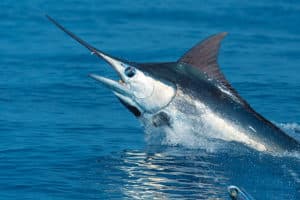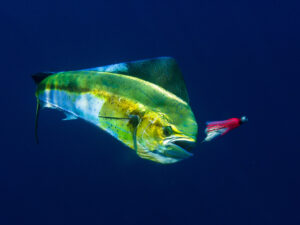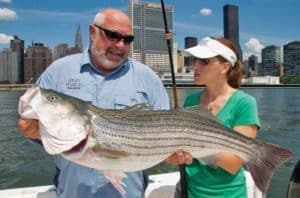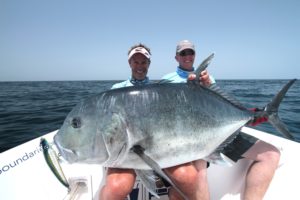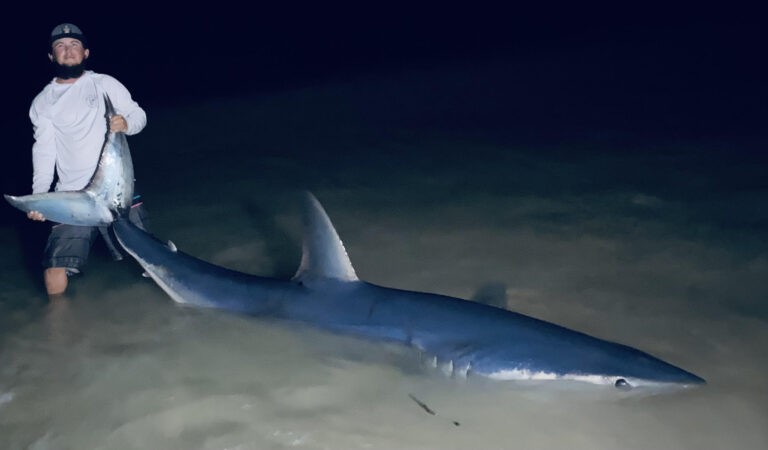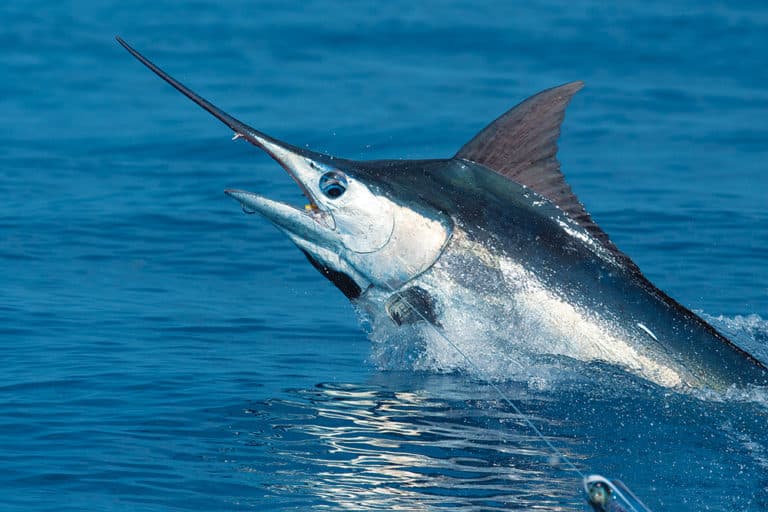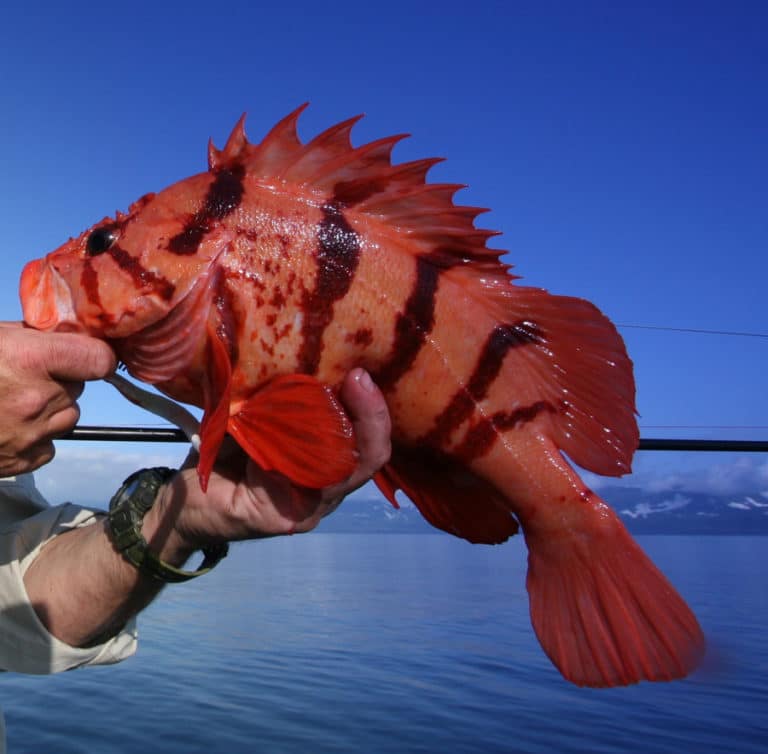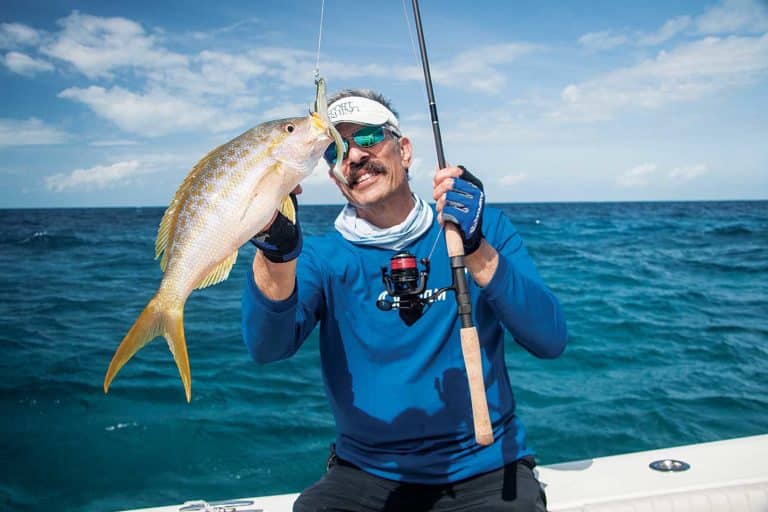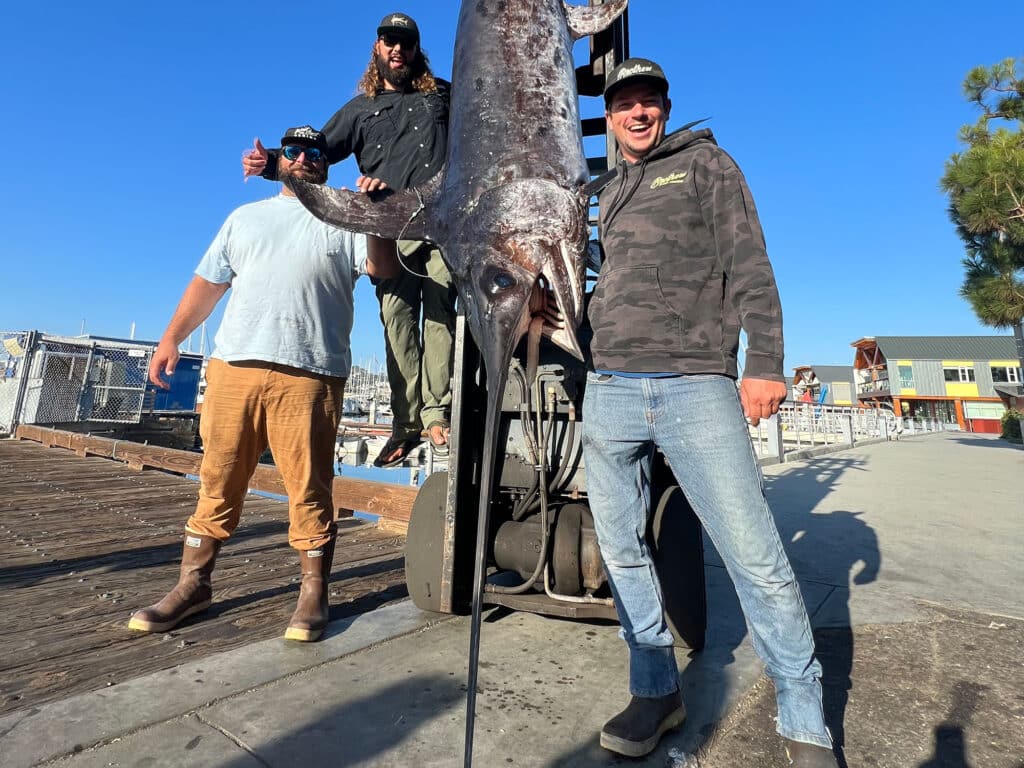
California’s state record swordfish was boated this fall by three dedicated and enthusiastic anglers. They like to think a fourth fisherman had a hand in their success, at least in spirit. Dillon Houston, Ezekiel Cruz, and Mason Karafa caught the swordfish on Oct. 27, a broadbill 68 pounds heavier than the previous California record.
They had spent the day fishing but not catching at La Jolla Canyon off San Diego. With the sun sinking in the sky, the moved to 9 Mile Bank, closer to the coast, where Houston — a co-owner of Brothers Sportfishing — last year met and became friends with Capt. Ron Ellis. A skipper from Santa Barbara who had relocated to San Diego, Ellis was lost at sea in February.
Help From a Friend
Houston, Cruz, and Karafa toasted his memory, dropped a squid-tipped hook nearly 2,000 feet, and within an hour had caught the 520-pound swordfish they’ll remember for the rest of their lives.
“We all looked at each other and said, ‘Capt. Ron had to have helped us do battle with that fish,’” Houston said.
The group fished from a 25-foot Davidson Bahia that usually sees bluefins, yellowfins, California yellowtail, mahi, and rockfish on Brothers Sportfishing charters. They only began swordfishing last year, so it’s no surprise they had never caught one this big. No one had, at least in California waters. The former state record fish weighed 452 pounds.
Using squid rigged on a J-hook and 12 pounds of lead, the group hooked up fairly quickly. After watching the rod tip intently for 10 minutes, Karafa jumped up and said, “we just got a bite,” Houston recalled. Karafa felt the rod come tight, and the 45-minute fight was on. A welder and son of a commercial swordfisherman from Chincoteague Island, Virginia, Karafa stayed on the rod throughout the fight.
They were able to unclip the sinker early in the fight, but the swordfish then sounded 900 feet (they watched it on the fishfinder). “When we got it back up, we saw it was a sword, and a big one at that,” Houston said.
The Challenges of Boating a Big Swordfish
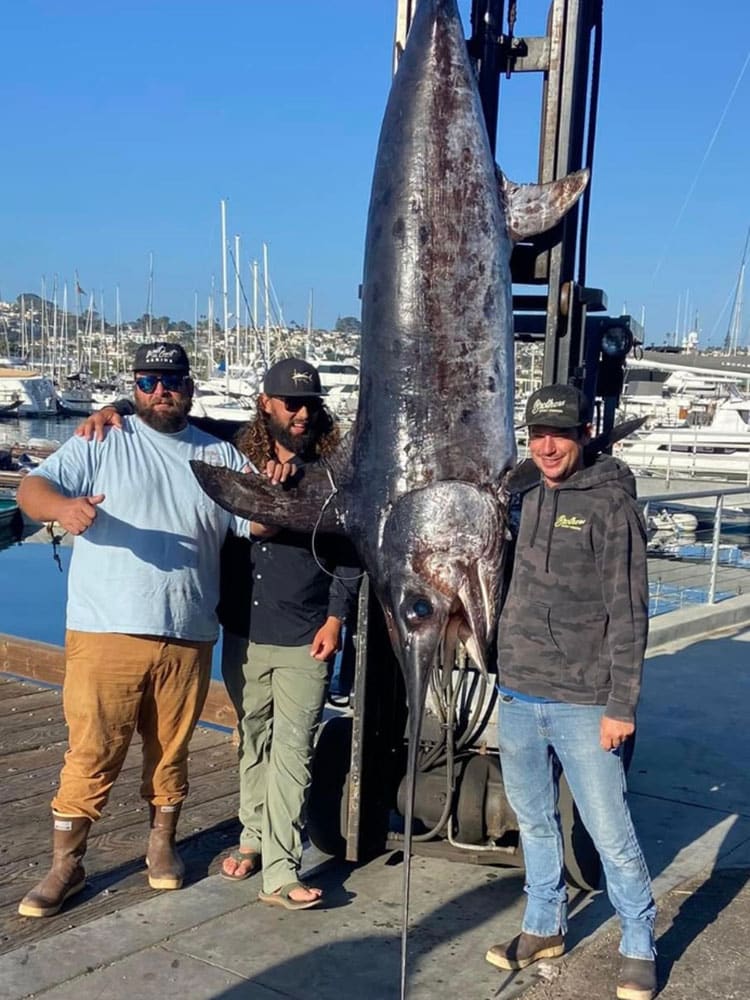
The fish made a blistering run at the surface, then abruptly turned and charged the boat. As it thrashed near the stern and tried to spear the motor, Cruz attempted to secure it with the flying gaff, but the fiberglass pole broke on the fish’s bill and the gaff hook came out. The fish, meanwhile, got the line tangled around the motor.
Eventually the line was cleared, although the crew had to cut off three deep-drop lights to get the loop through the guides. Then, Cruz successfully gaffed the fish. Houston was at the helm and drove to the sword, the crew recovering line as they went. As they got close, it became apparent the fish was nearly finished. The flying gaff line had wrapped around the fish’s bill. With the fish expiring, “we gave it our all and it finally got it into the boat,” Houston said.
Along with all the other challenges of boating a record fish is finding a scale big enough to weigh it. Back at Dana Landing, the scale only went to 499 pounds. Phone calls were made and the group drove another half hour by boat to Chula Seafood at Driscoll Wharf, where the weight was recorded on a certified scale. The fish was processed, vacuum sealed, and split three ways, with plenty going to family and friends.
A Record Breaker
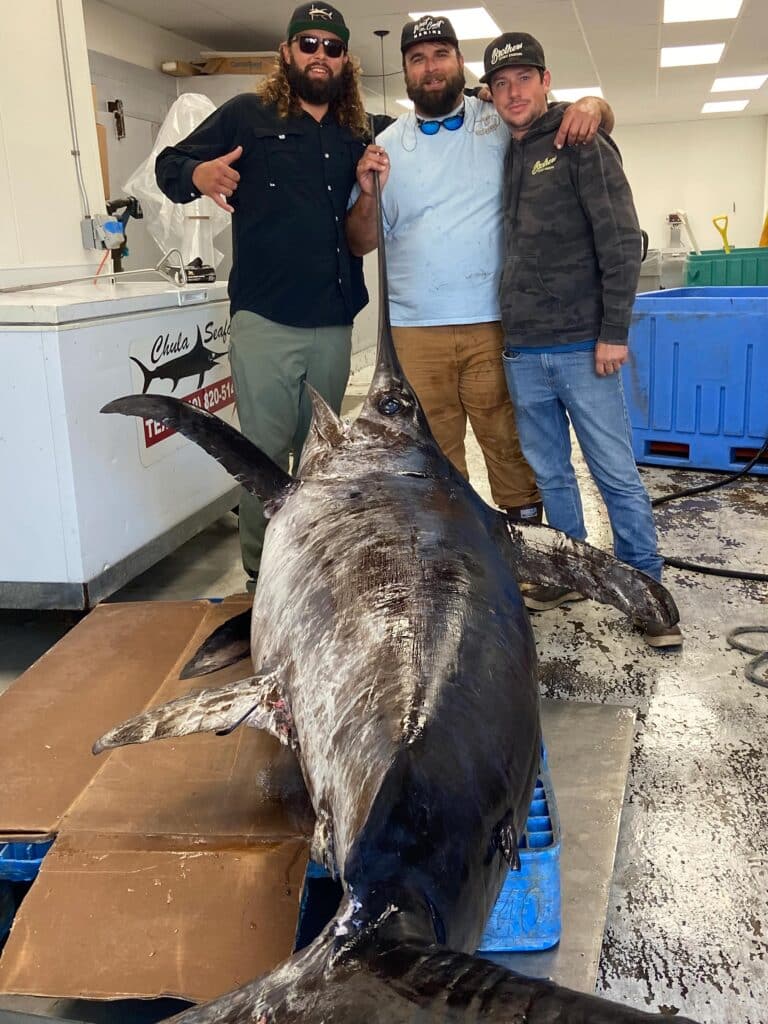
The record sword was caught on an 11/0 J-hook tipped with squid and tied to a 5-foot, 300-pound bite leader, followed by 200 feet of 100-pound mono, with 80-pound Izorline braid spooled on a Hooker Electric Shimano Tiagra 50-wide reel.
The California Department of Fish and Wildlife certified the record Thanksgiving week. Big as it was, the record sword was only about half the size of the International Game Fish Association all-tackle world record. That fish, caught in Iquique, Chile, way back in 1953, weighed 1,182 pounds.
Houston noted the broken gaff, the combative fish, the tangles, and the sheer size of the fish, and marveled that the group prevailed. “It was insane, honestly,” he said. “Nothing was normal about the fish, from the start all the way to the end. If the stars didn’t align the way they did, we would have been fighting that thing all night.
“To this day, when we’re sitting having a beer, we say, ‘Thank you Capt. Ron for helping us find that fish,” he added. “We honestly think that even though he’s gone, we still feel like he’s out there. We honestly feel like if it wasn’t for him we wouldn’t have landed that fish.”

